
by Noelia | Aug 4, 2021

As you may know, the IB learning community profile is guided by certain principles, principles that all Futuro Verde students embrace, giving an opportunity for each student to explore themselves, get to know themselves, and grow in a more holistic way.
One of my favorite ones is “Knowledgeable”, because as you may have heard: “knowledge is power”.
For many reasons (lack of information, fear, taboos, social opinions, etc.), women have had a hard time approaching the complete knowledge of menstruation. Without realizing it, we are giving away a super power we have: to ovulate! Yes, ovulation and all that implies. In fact my menstrual cycle teacher (yes, I have a teacher about this subject) says that the cycle should be called “ovulatory cycle” and not menstrual cycle, and I completely agree.
The cycle involves a coordinated and important movement of hormones throughout the month and ovulation is our official “tracker” of whether everything is going right or something is wrong (again, yes! Ovulation). It is so important for our health that Dr. Lara Briden devoted an entire book to explain why it should be considered our fifth vital sign.
That is why it is essential that girls begin to learn, before their menarche (their first menstruation), the whole experience of the menstrual cycle. They must learn how to read and record all the information that the menstrual cycle can give them.
Knowing themselves and the processes of their body and hormones will help them take care of their health in a more comprehensive way. They will also be able to detect health problems, eat according to the stage they are in, among many other things they can do with this information.
I told you, we have a super power!
During the menstruation workshops that I will be teaching to the fourth, fifth and sixth grade girls, we will learn about the complete experience of the cycle. We will learn the name of all the body parts involved and we will also be able to understand what happens from a creative and energetic level at each stage (and any other concept related to it). I must admit that I am very excited! Getting to know myself at this level has changed my life and my perception about myself, now it’s our student´s turn!
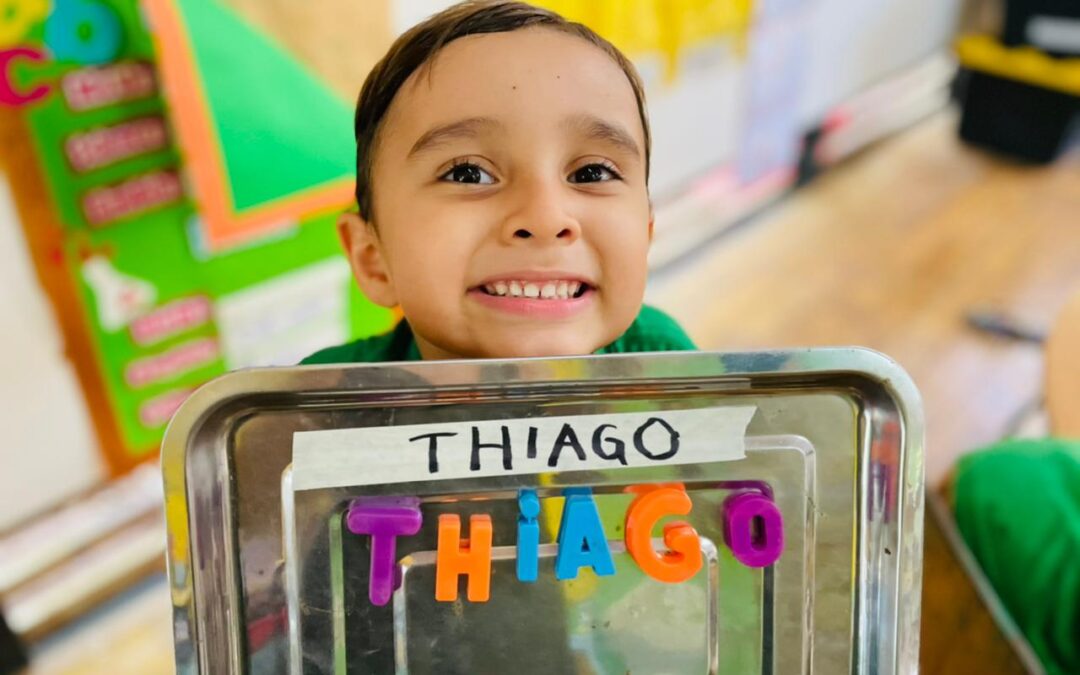
by Angie Briceño | May 18, 2021
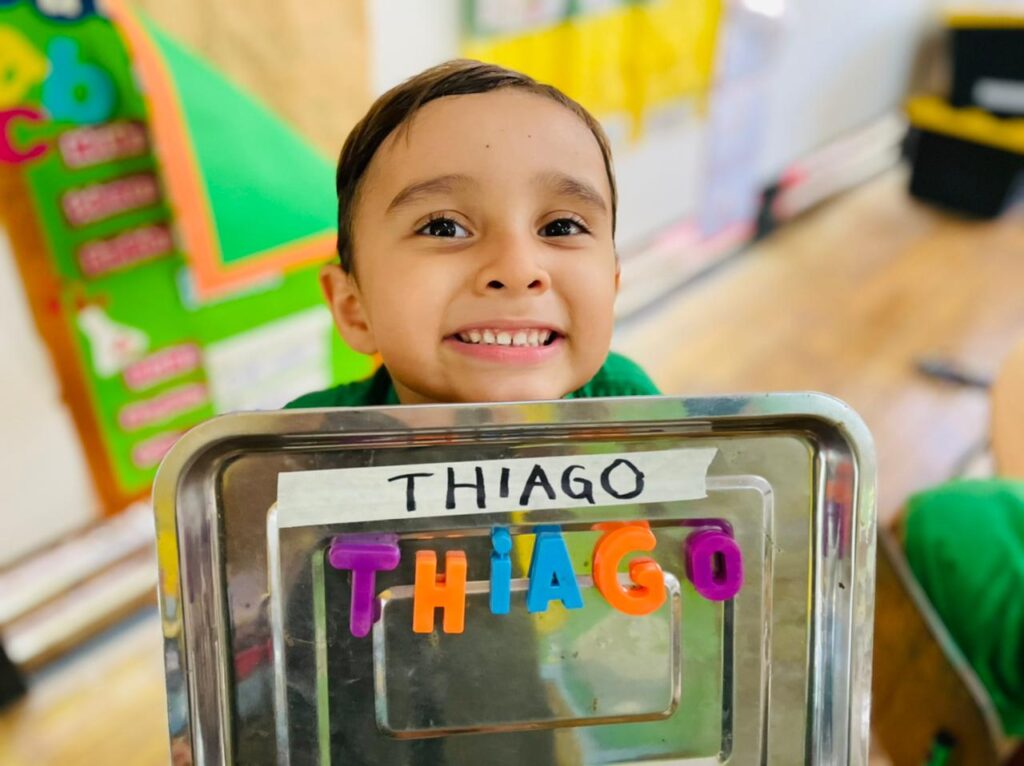
We have reached the end of the first semester of the year of transition to the international calendar and the students have made a great effort despite the difficulties of the bimodality that has occurred on different occasions.
We are aware of the difficult times that our community and the country have been going through during these months and that they have been challenging for students, that is why we want to communicate the importance of attending the parent-teacher conferences that will be held virtually this coming June 9th and 10th. During the parent-teacher conferences you will be able to learn more about the performance of your child. . It is important to be prepared and take into consideration some aspects for these conferences:
- It is a two-way conversation that focuses on the student’s academic performance and emotional development. The conversation should inform the parent of how the student is doing in class and how the student can improve. Make sure you bring questions you can ask the teachers to learn more about your child’s classroom performance and emotional development.
- Just like you, as a parent, the teachers at Futuro Verde also want your child to succeed, that is why during the conferences you will be able to discuss possible areas of growth both academically and in their overall development. It is important for you to be ready to ask questions about how you can support your child at home as well as how you can support your child at school, and together be able to come up with an action plan.
- If you are still not sure about the Futuro Verde´s assessment in your child’s grade, now is a good time to ask about it.
- Share with teachers information about your child, what is your child good at, the areas your child needs more support, areas in which your child is passionate about, and areas your child may not be that interested.
After teacher conferences, the appropriate follow-up is very important:
- Take notes on all the information you received during the conference. What will the teachers be doing to support the student and what will you be doing at home to support your child.
- You can talk to the teachers during the conference and schedule a meeting some time after the parent-teacher conference to follow up on the action plan.
- Remember that parent-teacher conferences are about your child, so be sure to tell them! Tell them what you learned and how they will receive support from both school and home. Ask what he or she thinks about the plan and about the suggestions.
We hope to see you all at the parent-teacher conferences on June 9 and 10 to share with teachers and stay informed. Invitations for the virtual conferences will be sent out closer to the conference dates. Do not miss them!
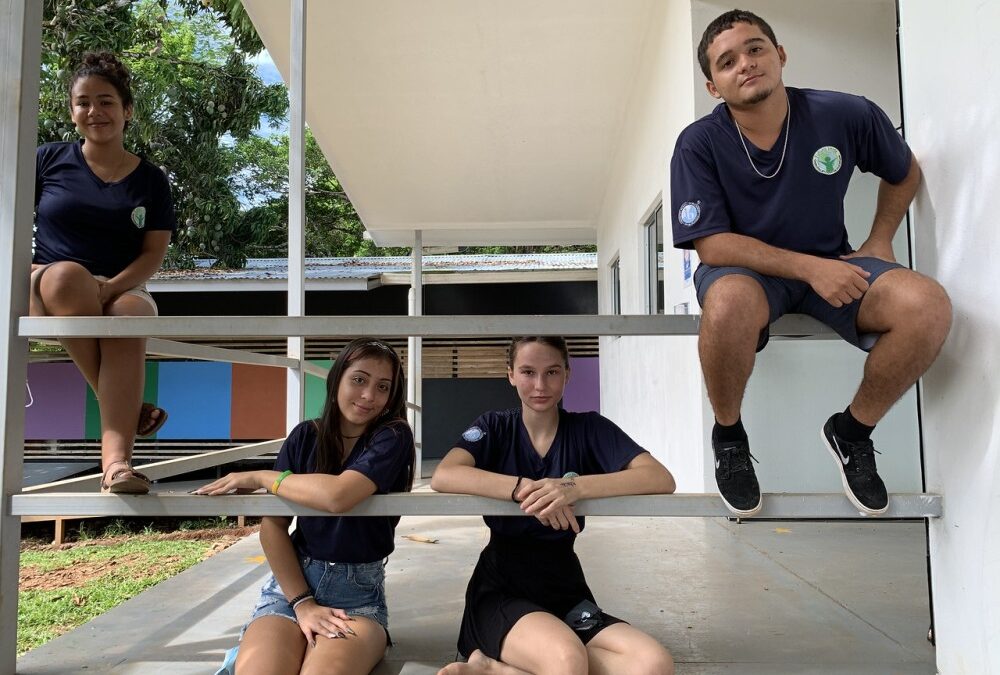
by Khalida Lockheed | May 7, 2021
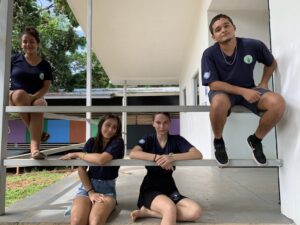
The International Baccalaureate is not only for Diploma Program students, 11th and 12th graders. The IB Organization offers programs in the Primary and Middle years, preparing students to be global citizens, transdisciplinary thinkers, and well rounded people.
Like other IB schools in Costa Rica, Futuro Verde, is not authorized as a “continuum school” offering all three programs. However, by offering the capstone Diploma Program, in order to properly prepare students to be successful has required that we align the primary and middle years’ curriculum to IB.
What does this mean?
It means that all teachers, at all levels, must learn about the IB programs and ensure students are meeting the required standards.
Furthermore, the IB programs and courses are continuously undergoing revision with updates and thorough course program review and revision every seven years. IB encourages teachers to participate in this process making it a collaborative product.
Okay, you say, it makes sense that teachers and students should learn about and practice the IB program at their level. But what about families? As parents of students in a private school, it is clear that education is an important value in your family. Why it is important for parents to understand the program of study of their children became more apparent during the last school year when the pandemic sent students home for virtual learning.
We all experienced school in a new way over the last year!
To this end, we invite you to visit this space for more information and an overview of the IB. In addition, we will be organizing parent meetings to further inform and learn about the IB programs and what it means for students at every level.
Keep tuned!
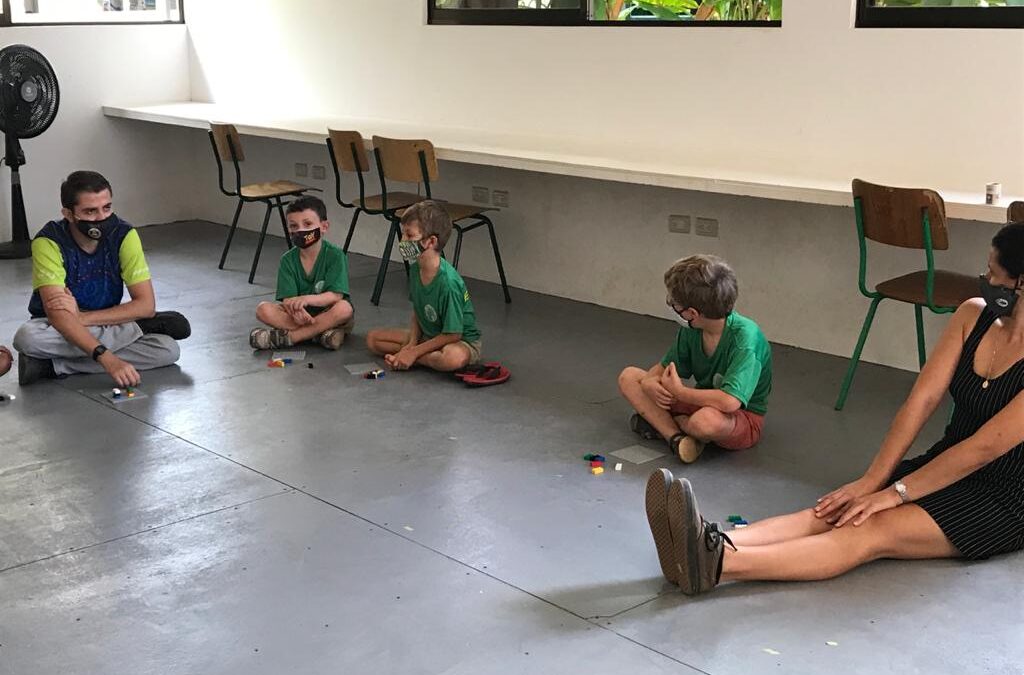
by Noelia | Apr 27, 2021
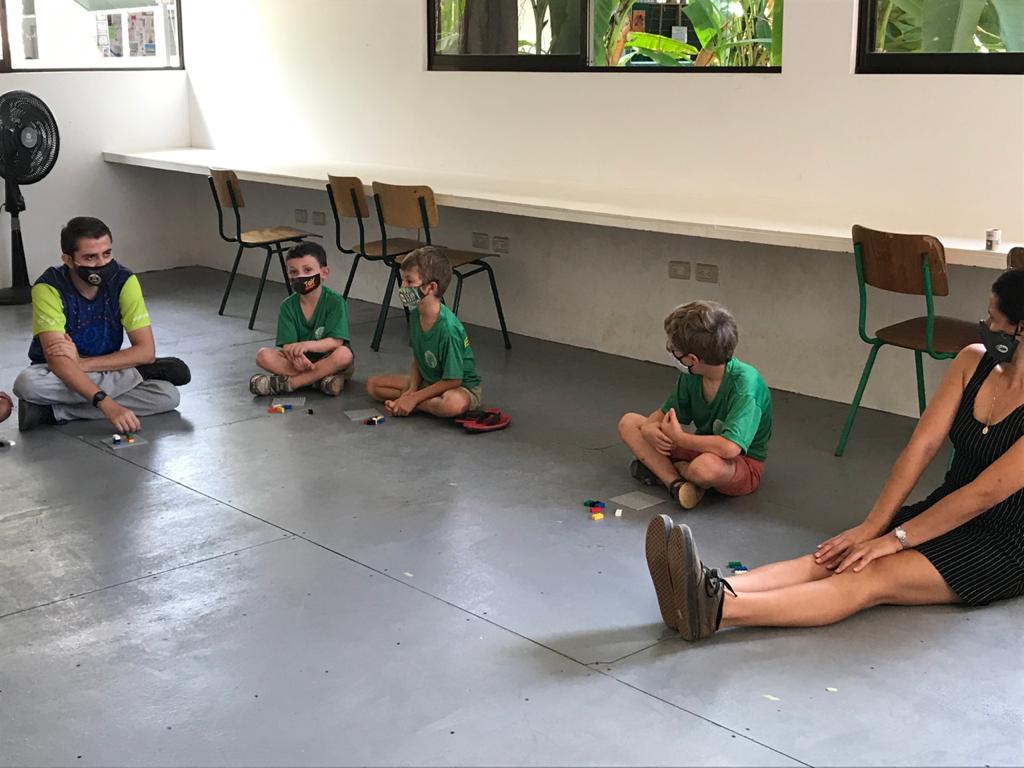
This 2020-21 has been atypical for our children, where we have had to migrate to a digital age that we were not used to. As part of the additional support for the boys, we implemented the robotics course.
This discipline gives us an early approach to the STEAM environment in which the jobs of the future are found, allowing students to develop soft skills such as programming, design, teamwork, among others.
An important point in this program is the approach to steam careers (programming, Electrical Engineer, Mechanical Engineer, Product Design Engineer). This allows the student before choosing their future career, to have a glimpse of the skills necessary to perform in these careers and not go blind in their choice.
Our robotics program seeks to open all these spaces, to bring children closer to the 4.0 industrial revolution that is diversifying the work spaces of the future.
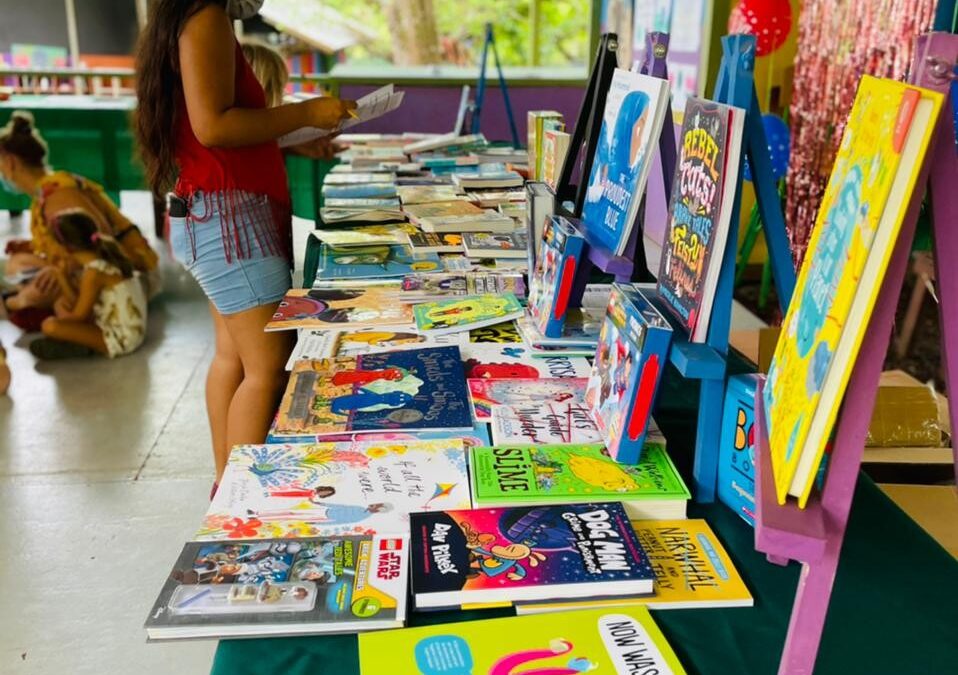
by Hileyn | Apr 23, 2021
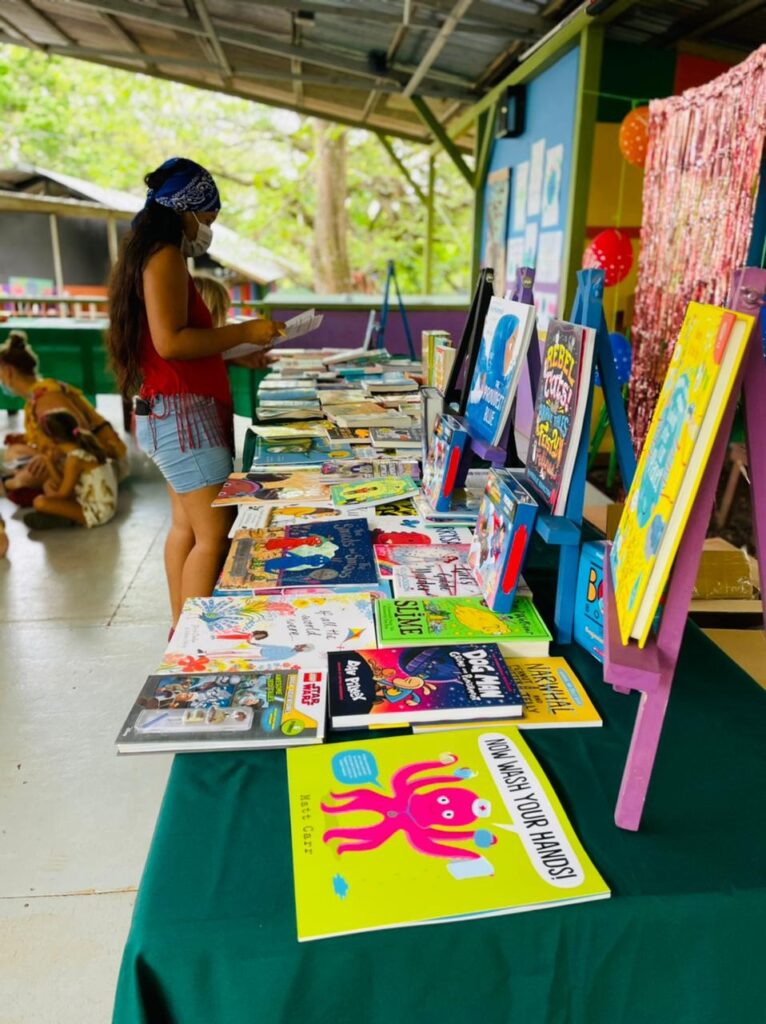
On April 23rd we celebrate International Book Day. It is a commemoration for the promotion of reading, the publishing industry and the protection of intellectual property. Cervantes and Shakespeare (among some other famous writers) passed away on the same day that is also why it became a symbolic date.
Although on this date the objective is to encourage people, especially young people, to discover the pleasure of reading, this is not an easy task. Jiménez Martínez mentions the purpose of encouraging reading in:
Books and their reading give the human being absolute freedom. Hence the importance that our children become readers with the desire to resort, on one hand, to reading as a will and to satisfy their demand for information, and on the other hand, to satisfy the need that both adults and children have to build a world outside the reality in which we live, in which we can give freedom to our fantasy and that allows us to enjoy and fly without any ties. (2004, p.25)
In school, reading is taught as a mechanical act, but by including reading along with a school library and meaningful activities, reading becomes an integral process of the person. While listening to a new story about a favorite subject, the intellect discovers new aspects and points of view. Also the physical and social emotional areas of the person develop as they play or dramatize a story.
Children are not exempt from discovering the world every day, and storytelling is part of this exploring process. That is why children should not be forced to read, but should be motivated to do so in a healthy way, so that their academic performance and personal development can be greatly improved. The child should choose for him/herself the book he/she is motivated to read, in this way he/she will feel the power of freedom.
We have to remember that reading is a right and forcing children and young people to read is useless. The consequence will be that children relate reading with an academic or mandatory moment instead of a moment of leisure and love for reading.
Parents can motivate their children to adopt the habit of reading by following these tips at home:
Being an example
Children observe their environment and learn from it, that is why at home, parents must set an example of reading. It is not possible to transmit a desire for reading if at home there is no time for it. If parents do not show their children that they are also able to take time and read but above all enjoy it, it will be very difficult to transmit it to their children.
In a traditional home if a family takes time to watch television every day, the children will learn what makes them happy and imitate their parents. It’s time to change our perspective and take that time as adults to read at home.
According to Arri ”People who like to read usually have had a family member who has passed on to them a passion for books. Lack of time is no excuse because when you really want something, you find the time to do it” (2012, p.313).
Reading together
Reading is not always an activity that should be done individually, this could cause the children to feel isolated, especially in early years. Reading time can be a great time to spend with the family. When children listen to their parents reading, they understand the message of the story better, so they can also read together and bond through reading.
Make some noise!
Reading aloud could be very beneficial, especially for young learners who are having difficulties during this learning process. It is also useful to teach them the pace and tone of appropriate reading. Sounds and different voices also make a big difference. Goodbye silence! Welcome to the sounds that can accompany our stories and make them more fun and engaging.
Reading aloud extends the attention span and it also helps improve the children´s pronunciation.
Reading should not be an exam or punishment
Sometimes the word exam could be related to stress and anxiety, that is why we cannot turn reading into a questionnaire, the reader has the right to remain silent while reading.
Reading is a prize, lets not condition it as a reward on doing something. “If you don´t read, you won’t have time for videogames”…
Right to choose
Parents can analyze the contents of a book, or the complexity of it, but should not place obstacles when choosing what to read. if it has controversial issues and the young person wishes to have access to this book, it is better to read it and reflect on the subject together, than to deny it. If the reading level is higher, we let the same reader experience and reconsider another.
Remember reading is what can set us free, let our children discover new opinions, places and worlds!
References
Arri, M. A. (2012). Errores de padres en su afán por que sus hijos lean. Boletín de La Asociación Andaluza de Bibliotecarios, 27(103), 312–314.
Jiménez Martínez, Lutgardo. (2004). Bibliotecas escolares: en un lugar de la lectura. Boletin de La Asociación Andaluza de Bibliotecarios, 19(75–76), 135–147.
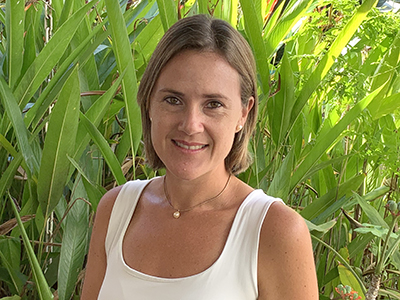
by Angie Briceño | Jan 5, 2021
On behalf of the administrative team we are pleased to announce that we have now hired the new members of the FV 2021 team. We are proud to have such a talented group of teachers and staff and are very happy that Noelia, Adriana, Francine, Daniela and Jimena are joining this group of professionals.
Get to know them a little better:
Adriana
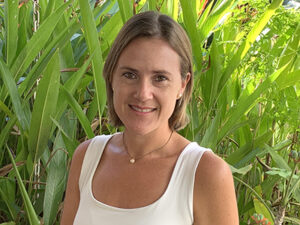 My name is Adriana Fernández Colombari. I am Costa Rican, mother of two children and I am 37 years old. I love sports, especially running and swimming. I enjoy spending time in nature, a good walk in the mountains and a nice sunset on the beach.
My name is Adriana Fernández Colombari. I am Costa Rican, mother of two children and I am 37 years old. I love sports, especially running and swimming. I enjoy spending time in nature, a good walk in the mountains and a nice sunset on the beach.
Teaching is my passion. I have been a teacher for 21 years and have experience in both primary and preschool. I am fluent in two languages; English and Spanish. I love teaching and motivating children to be independent. I enjoy teaching through meaningful experiences, discovery and play. I consider myself an organized person, responsible, collaborative, a leader and with many intentions to grow and continue learning as a person, as well as professionally.
It is an honor to be a part of the Futuro Verde team!
Francine
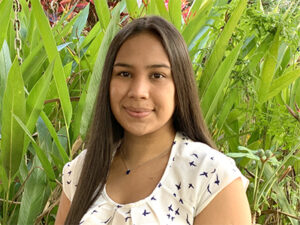 I was born in San José, Costa Rica, but moved with my family when I was very young to Pérez Zeledón, a beautiful rural area in the south of the country. In 2018 I began my studies at the National University in Education with a focus on primary school. Before working at Futuro Verde, I completed my professional practical at a small school in Liberia, Guanacaste. I am very excited and appreciative for the opportunity to work professionally in what I loves best, teaching!
I was born in San José, Costa Rica, but moved with my family when I was very young to Pérez Zeledón, a beautiful rural area in the south of the country. In 2018 I began my studies at the National University in Education with a focus on primary school. Before working at Futuro Verde, I completed my professional practical at a small school in Liberia, Guanacaste. I am very excited and appreciative for the opportunity to work professionally in what I loves best, teaching!
I am also very happy to be living so close to the beach and to be surrounded by so much nature.
Daniela
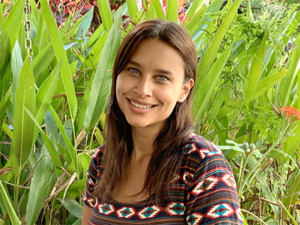 Daniela was born and raised in Cartago, Costa Rica and has only recently moved to Cóbano. She studied English language education bringing together her two favorite things: English and teaching. She has worked with children for the last 7 years, work she feels passionate about. She enjoys teaching and also learning new things from her students every day. In her free time she enjoys spending time with friends and family, going to the beach, running, having a cup of coffee and listening to music.
Daniela was born and raised in Cartago, Costa Rica and has only recently moved to Cóbano. She studied English language education bringing together her two favorite things: English and teaching. She has worked with children for the last 7 years, work she feels passionate about. She enjoys teaching and also learning new things from her students every day. In her free time she enjoys spending time with friends and family, going to the beach, running, having a cup of coffee and listening to music.
I am happy and enthusiastic to be joining the Futuro Verde staff and to get to know and work with my students.
Jimena
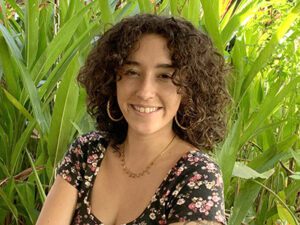 My name is Jimena, and I am a psychologist by profession, but beyond that I consider myself a lover of life. I love new experiences, learning and teaching. I love accompanying people through different phases of life, mainly educational and social.
My name is Jimena, and I am a psychologist by profession, but beyond that I consider myself a lover of life. I love new experiences, learning and teaching. I love accompanying people through different phases of life, mainly educational and social.
I have a certification in Art Therapy and was a dancer for many years. I also have certifications in teaching yoga classes for children, a certification in Mindfulness, a yoga training for adults in process, a technique in managing addictive behaviors, and 8 years of experience in social and educational fields, working with different communities.
Futuro Verde is a new adventure that I want to take on with the same energy, passion, versatility and leadership that characterizes my projects and myself.
Noelia
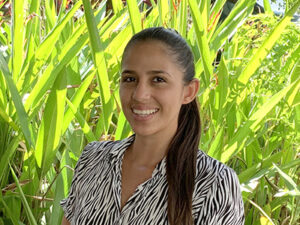 My name is Noelia Morales Perera. I was born in Alajuela 26 years ago, and I moved to Santa Teresa in April 2019. It was a wonderful change, since I love nature and the beach. I studied for 7 years at the Universidad Latina de Heredia, where I obtained a Bachelor’s Degree in Business Administration with emphasis on Marketing, and I am currently specializing in Digital Marketing.
My name is Noelia Morales Perera. I was born in Alajuela 26 years ago, and I moved to Santa Teresa in April 2019. It was a wonderful change, since I love nature and the beach. I studied for 7 years at the Universidad Latina de Heredia, where I obtained a Bachelor’s Degree in Business Administration with emphasis on Marketing, and I am currently specializing in Digital Marketing.
I have experience in customer service and in my area of study, since I worked three years as a teacher’s assistant in a high school, as well as a year as a Project Manager of Digital Accounts in an Advertising Agency, and a year and a half at the Front Desk in the prestigious hotel Casa Chameleon Mal Pais. I love children, they fill me with joy and happiness, as well as being surrounded by people and being able to share the importance of social media and the digital world in business.
Being part of Futuro Verde combines the things I love in a school environment of excellence and prestige!
We welcome the new members of the Futuro Verde educational community!
















